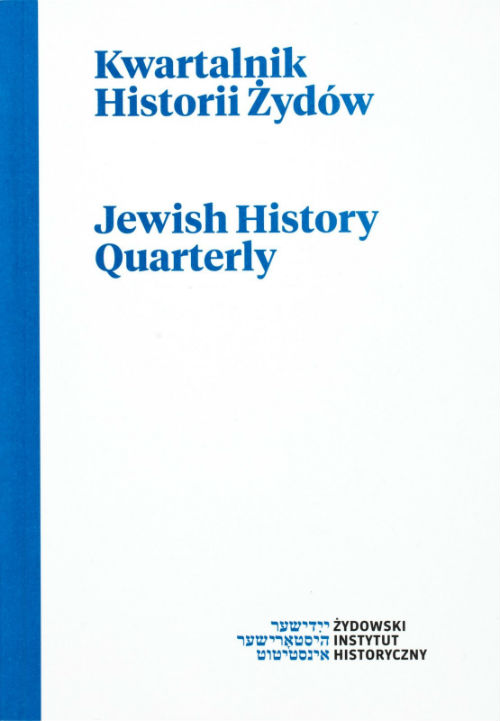O roli „rentierów tematyki okupacyjnej” na przykładzie ZBoWiD
ZBOWiD as an Example of the Role of People Living Off Stories of Nazi Occupation
Author(s): Joanna WawrzyniakSubject(s): History
Published by: Żydowski Instytut Historyczny
Keywords: Union of Fighters for Freedom and Democracy; war veterans; clientism; historical narrative
Summary/Abstract: One of the consequences of the Polish thaw that came in the wake of October 1956 developments, was a change in the role played by mass organizations. They assume a paternalistic, clientist and inclusive nature. The activities of these organizations are accompanied by the strengthening of personal ties, arranged in a complex network of informal influences and mutual obligations. That spontaneous form of social self-organization, secondary compared to the formal structures of the People’s Republic of Poland, is a characteristic feature of the realities of the 1960s; by praying on state institutions, it stabilized the system at the same time. The article presents the antecedents of the events of 1967 and 1968 in the light of the activities of the Union of Fighters for Freedom and Democracy, showing its operations both in the social and ideological sphere. Twenty years after the war the war veterans are getting old, increasingly becoming “professional” war veterans, who profit from acting in the Union of Fighters for Freedom and Democracy, if they decide to act that way. At the same time, as they find the time to engage in public life, they exert an influence on official stories about World War II, which are stories of Poland’s martyrdom and resistance movement.
Journal: Kwartalnik Historii Żydów
- Issue Year: 228/2008
- Issue No: 04
- Page Range: 427-446
- Page Count: 20
- Language: Polish

